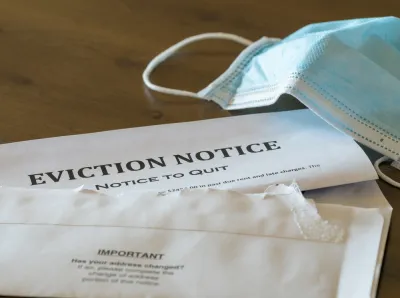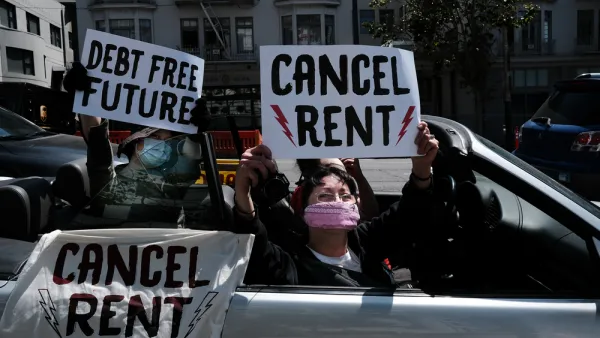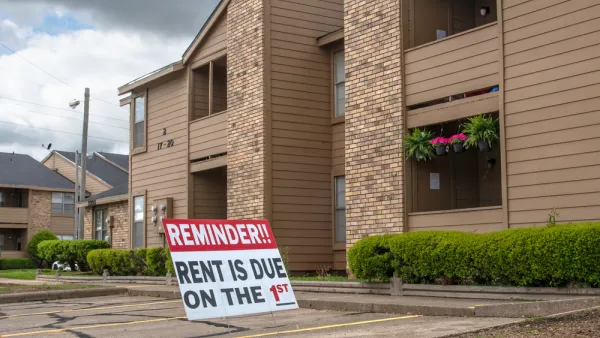A damning investigation reveals the immense financial resources that states could have spent on rent relief but failed to do so, whether willfully or not.

Millions of renters have spent the pandemic "facing possible eviction despite bold promises by governors to help renters after Congress passed the sweeping CARES Act in March 2020," according to an investigative report by Sarah Kleiner, Taylor Johnston, and Michael Casey for the Center for Public Integrity.
The headlining figure of the story: $425 million in promised rental assistance failed to reach the hands of tenants and landlords. "Nationwide, state leaders set aside at least $2.6 billion from the CARES Act’s Coronavirus Relief Fund to prop up struggling renters, but a year later, more than $425 million of that — or 16% — hadn’t made it into the pockets of tenants or their landlords," according to the investigation.
The tale of bungled and inadequate protections for renters during the pandemic continues: "The federal government had an eviction moratorium in place for the majority of 2020 and the first half of 2021, but landlords across the country have found creative ways around it. People in communities of color have been far more likely to receive eviction notices during the pandemic than people in white neighborhoods…"
The story begins by focusing on the example of North Carolina, where programs and funding were slow, obstructed, or deliberately sabotaged. But other states are included in this analysis too—like Georgia, West Virginia, Tennessee, and Alabama, which all decided not to set up statewide rent relief programs in 2020. The report also finds evidence of some states spending rent relief funds for other Covid-related purposes.
The damage to all of this neglect can be measured in lives. Diane Yentel, executive director of the National Low Income Housing Coalition, is quoted in the article describing research showing that "where eviction moratoriums were allowed to expire and tenants were evicted for nonpayment of rent, it led to increases in deaths from COVID-19."
The article also credits a dozen states for allocating all of the rental assistance from the Coronavirus Relief Fund by March 31.
FULL STORY: MORE THAN $425 MILLION PROMISED FOR RENTAL ASSISTANCE DIDN’T MAKE IT TO TENANTS OR THEIR LANDLORDS

Analysis: Cybertruck Fatality Rate Far Exceeds That of Ford Pinto
The Tesla Cybertruck was recalled seven times last year.

National Parks Layoffs Will Cause Communities to Lose Billions
Thousands of essential park workers were laid off this week, just before the busy spring break season.

Retro-silient?: America’s First “Eco-burb,” The Woodlands Turns 50
A master-planned community north of Houston offers lessons on green infrastructure and resilient design, but falls short of its founder’s lofty affordability and walkability goals.

Test News Post 1
This is a summary

Analysis: Cybertruck Fatality Rate Far Exceeds That of Ford Pinto
The Tesla Cybertruck was recalled seven times last year.

Test News Headline 46
Test for the image on the front page.
Urban Design for Planners 1: Software Tools
This six-course series explores essential urban design concepts using open source software and equips planners with the tools they need to participate fully in the urban design process.
Planning for Universal Design
Learn the tools for implementing Universal Design in planning regulations.
EMC Planning Group, Inc.
Planetizen
Planetizen
Mpact (formerly Rail~Volution)
Great Falls Development Authority, Inc.
HUDs Office of Policy Development and Research
NYU Wagner Graduate School of Public Service




























